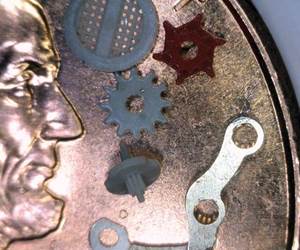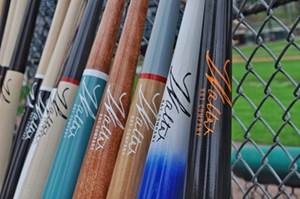The Basics Have Their Place
Ever the metalworking editor, my mind proceeded to translate parental concern into a parallel within our industry.
Between Christmas and New Year's, my wife, youngest son and I went to Clearwater, Florida under the guise of a soccer tournament for my son. Actually, the soccer was simply an excuse to get out of -5° temperatures and 10 inches of snow in Cincinnati to bask in Florida's 77° sunny weather.
My cousin, Dave Morgan, Ph.D., runs a research lab at the University of South Florida in Tampa and has a beach house in Clearwater that he kindly allowed us to stay in.
A daily rite at Dave's beach house is fixing a robust margarita and joining several neighbors to watch the sunset over the Gulf.
It's a delightful custom. Shorts, a T-shirt and flip-flops are a very rare December ensemble for a Midwesterner, so I embraced the idea. The margarita was good, too.
These daily sojourns also provided an opportunity to converse with Dave and his neighbors about a variety of topics as the sun slowly dropped toward the horizon. Our sunset group was eclectic, including people from all over the country, including one lady from Denmark and a gentleman from Puerto Rico.
One evening, the conversation migrated to discussing education. Several people in our group have young, grade school-aged children. My youngest is a junior in high school, so I pretty much listened to the conversation.
A concern voiced by several in the group is that their kids are not being taught handwriting, as in cursive. "My child has submitted papers typed on a computer since the second grade," one parent said. "Typed assignments might be easy on the teacher, but if my child leaves me a post-it note, I can barely read it."
My wife, who works at a private high school, said they have recently added a handwriting component to the standard testing the coinciding grade school participates in to refocus these young children on learning remedial handwriting. This handwriting issue was news to me but seemed to dovetail into other areas of educational weakness, such as math and science.
Ever the metalworking editor, my mind proceeded to translate this parental concern into a parallel within our industry. It seems to me that at the core of this education issue, and those issues faced by manufacturers, is confusion with tool application.
As more and more of our collective knowledge is captured in software and accessed through machine interface, the underlying intelligence that makes the output possible becomes seemingly less important. Take writing, for example. If a kid in second grade can create their homework on a computer, the skill needed to space lines, letters and words becomes unnecessary because the machine takes care of that for the child, as well as spelling and grammar. Over time, those skills atrophy to a point where a simple post-it note becomes incomprehensible.
Relying on tools to make the job easier, cheaper and more productive is a hallmark of precision-parts making, going back to the beginning. What was important then, and I believe is still vital, is not to confuse the science of any given tool as a substitute for the art of applying the tool. To me, it's a simple case of getting back to a basic understanding of why a certain sequence of keys punched into a math calculator gives a result. The calculator is a tool, but it's important to know how to do the math.
Related Content
Machining More Than Metal
Plastics for medical and industrial applications present different challenges than metals as I’ve reported on over the years.
Read More3 Common Filtration Questions Answered
Learn about the variety of filters for removing particulates from a cleaning fluid, how to determine cleaning fluid life and more.
Read MoreUnderstanding Micro-Milling Machine Technology
Micro-milling can be a companion process to turning-based production machining. This article looks at some of the technologies that go into a micro-milling machine and why they are important to successful operation.
Read MoreVideo: Why a Production Machine Shop Started a Baseball Bat Company
A 153-year-old manufacturer of precision, metal pins recently started a side business creating custom wooden baseball bats. The reasoning behind establishing this new company is intriguing, as is how it has helped create a stronger bond with the local community.
Read MoreRead Next
Seeing Automated Workpiece Measurement in Real Time
User-friendly inspection software for CNC machining centers was shown at IMTS 2024 monitoring measurements between and after machining while performing SPC based on recorded measurement values.
Read MoreA Tooling Workshop Worth a Visit
Marubeni Citizen-Cincom’s tooling and accessory workshop offers a chance to learn more about ancillary devices that can boost machining efficiency and capability.
Read More5 Aspects of PMTS I Appreciate
The three-day edition of the 2025 Precision Machining Technology Show kicks off at the start of April. I’ll be there, and here are some reasons why.
Read More












.jpg;maxWidth=300;quality=90)










